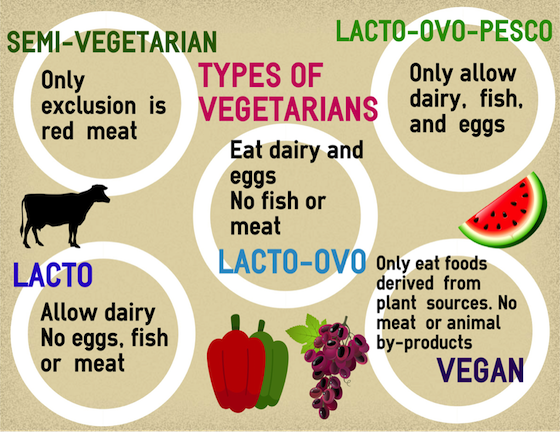For a few years now, I have wanted to be a vegan. Being vegan is a daunting task though, given that I don’t like salad and I don’t really like raw vegetables. So I thought I would start with a more realistic goal, being vegetarian.
I don’t really know that much about being vegetarian, so far I have only been vegetarian for two days. But the past four days have felt like an accomplishment. I want to share about what I eat, share recipes, and share information about the different types of vegetarianism and bring awareness to some of the common misconceptions there is about it. My ultimate goal with this blog is to share my new knowledge about meatless diets and plant-based diets and to be a vegetarian by the time I have finished writing my blog.
I want to first start out with information about veganism and vegetarianism. There are a lot of misconceptions that come along with the two lifestyles/diets, so I want to give myself and the readers of my blog the information.
The guidelines for vegetarianism is much more flexible than veganism. The most basic vegetarianism is eating a meatless diet. Vegetarians not eat meat, fish or poultry. There are variations of vegetarianism. Some people choose to be pescatarian, meaning that they eat fish. They don’t eat any other type of meat other than fish. Some people choose to be ovo-vegetarians, meaning they can eat eggs. They still do not eat meat or dairy products. Some people choose to be lacto-vegetarians, meaning they eat dairy products. They still don’t eat meat or eggs. Some people also choose to be lacto-ovo vegetarians, meaning they eat eggs and dairy products. They still don’t eat meat. These different choices of diet are flexible to a specific person, there are many options which allows you to find what’s best for you personally. Vegan diets exclude all meats, dairy, eggs, and animal products. People can also be semi-vegetarian, meaning they follow mostly a vegetarian diet, with a few meat, dairy, and egg products included into their diet.
I would like to start as a vegetarian, where I eat no meat, dairy, or eggs. I think this will be a very rewarding task because I eat meat and dairy everyday. I think what’s important to getting started is knowing how to meet all the necessary nutrients for the day, specifically protein, which many people have questions and misconceptions about.
Many people believe that as a vegetarian, people won’t get the protein they need in a day. When I was home and visiting my girlfriend, I told her family about my plan to be vegetarian. As I was telling them, the only comment I got from her mom was, “make sure you get enough protein because vegetarians don’t eat enough.” Sadly, I hadn’t done much research into how to get ample levels of protein as a vegetarian, so I couldn’t rebuttal what she had to say. So, as an aspiring vegetarian, I feel it is my duty to inform how vegetarians get all of their nutrients. Some main sources of protein come from soy products, like tofu and tempeh. Seitan, something I’ve never heard of, is a protein source that comes from wheat and resembles the look and texture of meat. This is a great option for someone who is just starting their vegetarianism journey because it can easily be made to fit your diet. Additionally, beans, chickpeas, oatmeal, wild rice, nuts, and many protein-rich fruits and vegetables are an easy way to meet the daily protein values needed. The vitamin B12 is not found in any plants, so taking B12 supplements is a good idea for anyone who has a meatless diet. B12 helps prevent anemia because it is important in keeping blood cells healthy. Some soy products contain B12, so making sure to read the nutritional values of the foods you consume is important.
This information was not only informative to me and is going to help me with my vegetarian diet, but I also hope it was informative to other people who are interested in vegetarianism. For the next week, I am going to focus on trying to eat no meat, dairy, or eggs, and hopefully using what I have learned, it will be an easy transition from eating a meat, dairy, and egg rich diet.



2 Responses